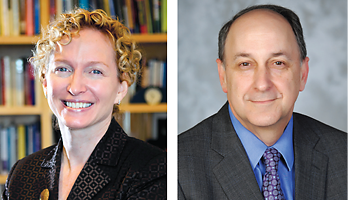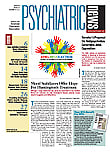The essence of professionalism is service to others. In psychiatry, our professionalism is expressed in our care of people living with mental illness and their families, in our work with colleagues and students from many fields, in our dedication to advancing science, and in our efforts within communities, health systems, and society at large. As with all disciplines in the house of medicine, upholding professionalism in psychiatry involves the creation and application of special expertise as well as ensuring the competence of our colleagues.
Translating these lofty ideals into the everyday activities of psychiatrists may seem to generate more questions than answers. How do we “think on our feet” fast enough to resolve the professional dilemmas that we encounter every day? Are the professional expectations of psychiatrists different, depending on whether we perform cognitive-behavioral psychotherapy in an urban setting or provide inpatient treatment in a rural hospital? In which situations is it “professional” to accept a gift from a patient rather than graciously decline it? Are professional expectations different for us than physicians in other areas of medicine? How does one know what is “professional” when the standards of the field are evolving so quickly?
There is a short answer and there is a long answer when thinking about these kinds of questions in psychiatric practice. The short answer: a professional behavior is one that withstands the “test” of being truly in the service of the well-being of the patient, rather than other factors that may have bearing in the situation. A concrete example illustrates this principle: a consultation psychiatrist may correctly choose to hold an elderly patient’s hand for several minutes after that patient has just learned that she has advanced cancer. In contrast, a psychoanalytic psychotherapist may need to abstain from even a brief hug to his patients at the end of routine sessions. In one situation, physical contact serves to comfort the patient appropriately, but in another it may serve to gratify the physician inappropriately. In the first part of the table, we illustrate examples of behaviors upholding professional boundaries in psychiatry.
The long answer is that professionalism in psychiatry involves constant and honest self-reflection about one’s aims and motivations, and it also involves a current understanding of the emerging trends in ethics that serve as the basis for the public trust in our field. Psychiatry is, in fact, held to a different standard than other disciplines in medicine because of the nature of the diseases we treat and the potential vulnerability of our patients; also, the therapeutic rela tionship itself is the major vehicle for carrying out our treatments. It is both our greatest strength clinically and our greatest vulnerability professionally. Many may argue that society should set higher expectations for other fields of medicine.
Some would also argue that with the heightened prominence of cultural considerations in clinical care, some patients may “ethically” receive one kind of care whereas others may receive a different, perhaps lesser, form of care. These concerns may be true— nevertheless, professionalism in psychiatry, and medicine more broadly, involves the willing acceptance of certain ethical obligations as reflected in four fundamental ethics “skills.” (These skills are listed under the second heading of the table)
Professionalism and the ethical under pinnings of our field will only grow in importance in the coming years. Public scrutiny of all professions has increased in response to scandals in arenas as diverse as acceptance of philanthropic gifts, “heroic” behavior to save a patient from suicide, and financial arrangements with pharmaceutical companies. The issues are becoming even more complicated with the development of new technologies, such as psychiatric genetics and biomarkers and the use of surgical interventions for psychiatric indications, not to mention the rapid-paced developments in cyberspace and their implications for doctor-patient communication. The ethics of the field will move ahead regardless of whether we pay attention. It is to our advantage, as well as to the advantage of our patients, if we lead rather than follow in these efforts.
Examples of Behaviors Upholding Professional Boundaries
Absence of any form of sexual contact
Limited physical contact of any kind
Consistent and appropriate timing, length, and location of sessions
Respectful language and style of communication
Judicious use of self-disclosure
Appropriate efforts to protect patient privacy and to uphold the privilege of confidentiality
Abstinence from business transactions other than the fee for service
Limitations on gifts to or from patient
Essential Professional Skills For Ethical Practice
Recognizing ethical issues
Appreciating one’s own role in the therapeutic process
Anticipating ethically “risky” situations in patient care
Approaching, making, and enacting ethical decisions
Source: Glen O. Gabbard, M.D., et al.
Professionalism in Psychiatry, American Psychiatric Publishing, 2011



